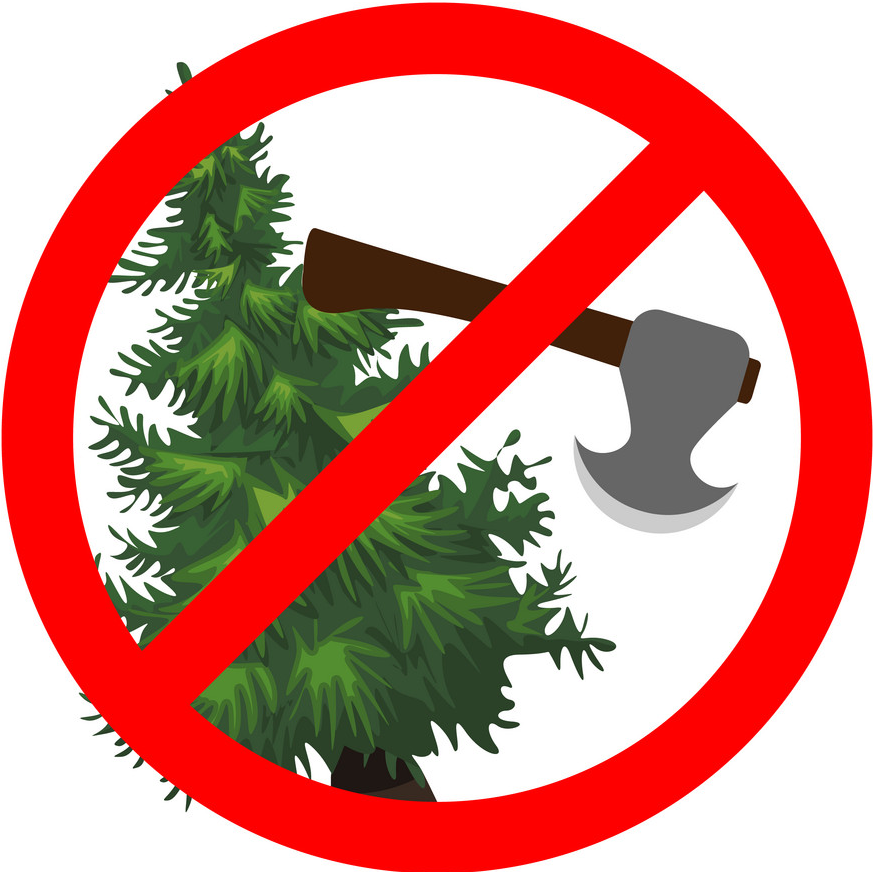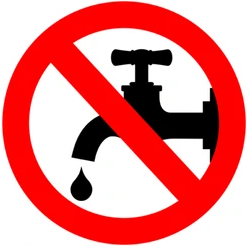|
SỞ GD – ĐT THÀNH PHỐ HỒ CHÍ MINH ĐỀ THI THỬ SỐ 30 |
KỲ THI TUYỂN SINH VÀO LỚP 10 Thời gian làm bài: 90 phút |
Họ và tên học sinh:.................................................................................................................................................
- Choose the word (A, B, C or D) whose underlined part is pronounced differently from the others.
- Choose the word (A, B, C or D)whose main stress is placed differently from the others in each group.
- Choose the word / phrase (A, B, C or D) that best fits the space in each sentence.
A. tools B. faucets C. cracks D. pipes
A. treasure B. junkyard C. foam D. sewage
A. great B. valuable C. effective D. enormous
A. reused B. reduced C. replaced D. realized
A. prohibit B. allow C. permit D. control
A. If B. Unless C. If not D. When.
A. look B. looking C. looked D. to look
A. rang B. will ring C. rings D. has rung
A. Wonderful thing! B. Sure thing! C. Good thing! D. Bad thing!
- Choose the best answer (A, B, C or D) for the following picture or sign.
|
A. You can’t cut down the small tree B. You mustn’t cut down the tree with an axe. |
|
- Choose the word (A, B, C or D) that best fits the blank space in the following passage.
- A. reasons B. effects C. purposes D. ways
- A. reused B. recycled C. dumped D. exhausted
- A. removal B. absence C. arrival D. presence
- A. so that B. if C. so D. as
- A. dropping B. dripping C. shutting D. increasing
- A. disappoints B. spoils C. decreases D. prevents
- Read the passage, then decide if the statements that follow it are True or False.
- We can do nothing to help the environment. __________________
- Carbon monoxide comes from burning of petroleum. __________________
- The more petroleum we burn the better the environment is. __________________
- Energy is used to heat and cool homes. __________________
Read the passage again and choose the best answer.
A. The source of CO B. Energy-saving bulbs
C. The ozone layer D. Some ways to protect the environment
A. normal B. Cheap C. effective D. modern
- Use the correct form of the word given in each sentence.
- All the fans looked sad because the team played ________________________________. (disappoint)
- If you are feeling ___________________________________, we could go out for a run. (energy)
- We recommend that this wine should be _________________________ within six months. (consumption)
- While travelling abroad, take ___________________________ measure to avoid illness. (prevent)
- We are working for the ____________________________________ of the environment. (preserve)
- The new law will come into ____________________________________ early next year. (effective)
- Put the words in the correct order to make meaningful sentences.
- Rewrite each of the following sentences in another way so that it means almost the same as the sentence printed before it.
|
SỞ GD – ĐT THÀNH PHỐ HỒ CHÍ MINH ĐỀ THI THỬ SỐ 30 |
KỲ THI TUYỂN SINH VÀO LỚP 10 Thời gian làm bài: 90 phút |
I. Choose the word (A, B, C or D) whose underlined part is pronounced differently from the others.
- A. looked /t/ B. crashed /t/ C. stopped /t/ D. lived /d/
- A. mind /aɪ/ B. bike /aɪ/ C. fit /ɪ/ D. tidy /aɪ/
II. Choose the word (A, B, C or D) whose main stress is placed differently from the others in each group.
- A. attend /əˈtend/ B. struggle /ˈstrʌgl/
C. reduce /rɪˈdjuːs/ D. reward /rɪˈwɔːd/
- A. chemical / ˈkɛmɪkəl / B. sociable / ˈsəʊʃəbl /
C. illegal / ɪˈliːgəl / D. primary /ˈpraɪməri/
III. Choose the word or phrase (A, B, C or D) that best fits the blank space in each sentence
- C. cracks: Kiểm tra từ vựng: tool (công cụ), faucet (vòi nước), crack (vết nứt), pipe (đường ống), drough (đợt hạn hán).
Dịch: Những vết nứt rộng xuất hiện trên mặt đất trong đợt hạn hán.
- D. sewage: Kiểm tra từ vựng: treasure (kho báu), junkyard (bãi phế liệu), foam (bọt), sewage (nước thải).
Dịch: Ở một số vùng của đất nước, nước thải thô (nước thải chưa qua xử lý) được bơm thẳng ra biển.
- B. valuable: Kiểm tra từ vựng: great (tuyệt vời), valuable (có giá trị), effective (có hiệu quả), enormous (to lớn)
Dịch: Những tên trộm đã lấy đi ba món đồ trang sức có giá trị.
- C. replaced: Kiểm tra từ vựng: reuse (tái sử dụng), reduce (giảm), replace (thay thế), realize (nhận ra).
Dịch: Nhiều công nhân đã được thay thế bằng máy móc.
- A. prohibit: Kiểm tra từ vựng: fine (phạt), prohibit (cấm), allow (cho phép), permit (cho phép), control (điều khiển)
Dịch: Tôi nghĩ chính phủ nên cấm và phạt bất cứ ai xả rác trên đường phố.
- B. Unless: Kiểm tra từ nối.
Dịch: Trừ khi bạn (Nếu bạn không) để lại địa chỉ hoặc số điện thoại, chúng tôi sẽ không thể liên hệ với bạn.
- A. about.
- B. looking: avoid + V-ing: tránh làm việc gì đó.
- C. rings: Điều kiện loại 1. Mệnh đề If chia hiện tại đơn.
- B. Sure thing! (Chắc chắn rồi) Câu hội thoại thực tế. Đáp lại lời nhờ vả.
IV. Choose the best answer (A, B, C or D) for the following picture or sign.
- Biển báo này có nghĩa:
- Bạn không thể chặt cây nhỏ.
- Bạn không được chặt cây bằng rìu
- Ở đây cấm phá rừng.
- Không được phép hút thuốc ở đây.
- Biển báo này có ý nghĩa:
- Bạn không thể sử dụng nước ở đây.
- Bạn nên tiết kiệm nước.
- Bạn không được bật vòi.
- Bạn không được phép tắt vòi nước.
V. Choose the word or phrase (A, B, C or D) that best fits the blank space in the following passage.
Những tác động tiêu cực (17) của ô nhiễm biển gấp hai lần. Các sinh vật biển và thực vật bị ảnh hưởng bởi các chất độc hại trong các vật liệu bị thải ra biển. Các chất thải (18) được thải vào đại dương có xu hướng có các chất độc hại, chúng ngấm vào tất cả oxy của đại dương. Điều này dẫn đến lượng oxy cung cấp cho các loài động vật có vú và các loài cá khác bị giảm rõ rệt khiến chúng chết trong môi trường sống tự nhiên. Hàng năm, hơn một triệu con chim biển đang bị giết bởi ô nhiễm đại dương. Ngoài ra, sự hiện diện (19) ngày càng nhiều của nhựa trên bề mặt đại dương đã dẫn đến nhiều vấn đề nghiêm trọng hơn. Hầu hết các mảnh vụn nhựa (mảnh vỡ của thứ gì đó) đến đại dương vẫn trôi nổi trong nhiều năm (20) vì nó không phân hủy nhanh chóng, và nó dẫn đến (21) giảm mức oxy trong nước, ảnh hưởng nghiêm trọng đến sự tồn tại của các loài sinh vật biển. Tương tự như vậy, sự hiện diện của các chất thải độc hại trong nước làm ảnh hưởng đến thói quen ăn uống và sức khỏe của con người vì nó (22) làm hỏng chuỗi thức ăn và làm hỏng hệ thống sinh sản của cá và các loài thủy sinh khác.
- B. effects
- C. dumped
- D. presence
- D. as
- A. dropping
- B. spoils
VI. Read the passage, and then decide if the statements that follow it are TRUE or FALSE.
Our environment is in trouble. People and industries are polluting the air, rivers, lakes and seas. There are many things you can do to help the environment. Here are a few.
Firstly, the burning of petroleum is one of the biggest sources of carbon monoxide (CO) that causes global warming. CO thins the ozone layer, which protects us from the sun’s ray. So try to walk, cycle or use public transportation.
Secondly, the biggest use of home energy is for heating and cooling homes. It not only consumes much energy but also costs a lot of money. So turn the heat down, especially at night. Replace ordinary light bulbs with energy-saving light bulbs, which use less energy.
Finally, showers use a lot of water. Buying a special “low-flow” shower head or taking shorter showers can cut this use in half.
- FALSE. Từ khóa là help the environment. Câu văn In July 1945, a tomato fight started in the market square of Buňol, near Valencia in Spain
- TRUE. Từ khóa là Carbon monoxide. Câu văn the burning of petroleum is one of the biggest sources of carbon monoxide (CO) that causes global warming.
- FALSE. Đoạn văn không đề cập.
- TRUE. Từ khóa là heat and cool. Câu văn the biggest use of home energy is for heating and cooling homes.
- D. Some ways to protect the environment.
- A. ordinary = normal: bình thường.
VII. Use the correct form of the word given in each sentence.
- Dấu hiệu: Trước chỗ trống là động từ “played”, do đó chỗ trống là trạng từ.
Đáp án: disappointingly.
- Dấu hiệu: Trước chỗ trống là động từ “feel”, chỗ trống phải là tính từ.
Đáp án: energetic.
- Dấu hiệu: Trước chỗ trống là động từ tobe “should be”, chỗ trống phải là động từ V3 tạo thành thể bị động.
Đáp án: consumed.
- Dấu hiệu: Trước chỗ trống là danh từ “measure”, do đó chỗ trống phải là tính từ.
Đáp án: preventive.
- Dấu hiệu: Trước chỗ trống là mạo từ “the”, sau chỗ trống là giới từ “of”, do đó chỗ trống phải là danh từ.
Đáp án: preservation.
- Dấu hiệu: cụm từ come into effect: có hiệu lực thi hành.
Đáp án: effect.
VIII. Put the words in the correct order to make meaningful sentences.
Muốn sắp xếp lại được câu văn hoàn chỉnh, phải theo đúng cấu trúc câu:
- If you have fever, cough and difficulty breathing, seek medical care early.
Dịch: Nếu bạn bị sốt, ho và khó thở, hãy đi khám sớm.
- You can prevent viruses from entering your body by washing your hands often and properly.
Dịch: Bạn có thể ngăn vi rút xâm nhập vào cơ thể bằng cách rửa tay thường xuyên và đúng cách.
IX. Rewrite each of the following sentences in another way so that it means almost the same as the sentence printed before it.
- Viết lại câu với từ nối khác sao cho nghĩa không đổi bắt đầu bằng “since (bởi vì)”
Đáp án: Since they haven’t replied my invitation, I think they’re not coming to my party.
- Viết lại câu với nghĩa không đổi. Chuyển từ “S + be + too…to V…(quá … đến nỗi không thể làm gì…)” sang “S + V + adj/adv enough to V…” hoặc “S + be/V + enough + danh từ + to V…”
Đáp án: He doesn’t speak English well enough to be an interpreter.
- Viết lại câu. Nhớ sau “that” là một mệnh đề (S + V + O).
Đáp án: I was disappointed that the quality of the wine was so bad.
I was disappointed that the wine had the bad quality.
- Viết lại câu điều kiện. Giả sử một việc có thể xảy ra ở hiện tại hoặc tương lai, dùng câu điều kiện loại 1.
Đáp án: If we don’t set off early, we’ll get stuck in traffic.

